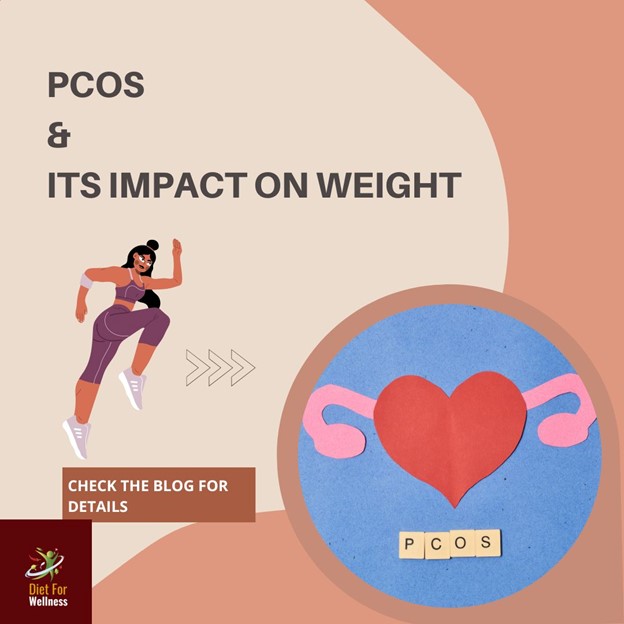PCOS and Its Effect on Your Weight

Most women face weight gain at some point in their lives, but for those with polycystic ovary syndrome (PCOS), losing weight can be a persistent challenge.
PCOS is the most common hormonal disorder among women of childbearing age and can lead to fertility issues. Women with PCOS have higher levels of male hormones and are often “insulin-resistant,” meaning they are less sensitive to insulin. Many of them are overweight or obese, which increases their risk of developing diabetes, heart disease, sleep apnea, and uterine cancer.
What is PCOS?
PCOS is a complex endocrine disorder with a variety of symptoms, including
- Irregular Menstrual Cycles- Women with PCOS experience prolonged or irregular menstrual periods.
- Excess Androgens- Elevated levels of male hormones can lead to physical signs such as excess facial and body hair (hirsutism), severe acne, and male-pattern baldness.
- Polycystic Ovaries- Enlarged ovaries that contain numerous small cysts.
The exact cause of PCOS is unknown, but factors such as genetics and insulin resistance play significant roles.
How Does PCOS Affect Weight?
Weight gain and difficulty losing weight are the main issues faced by women with PCOS. Factors contributing to this challenge are-
- Insulin Resistance– Many women with PCOS have insulin resistance, which means their bodies can produce insulin but cannot use it effectively. This condition leads to higher levels of insulin in the body, which can increase fat storage and make weight loss more difficult.
- Hormonal Imbalance– PCOS is associated with an imbalance of reproductive hormones, which can contribute to weight gain. High levels of insulin can trigger the ovaries to produce more androgens, further disrupting hormonal balance and promoting weight gain.
- Metabolic Changes- Women with PCOS often have a slower metabolism, making it harder to lose weight even with a healthy diet and regular exercise.
The Vicious Cycle- Weight Gain and PCOS
The relationship between PCOS and weight is often described as a vicious cycle. Weight gain can exacerbate insulin resistance and hormonal imbalances, worsening PCOS symptoms. In turn, these symptoms can make it even harder to manage weight, creating a challenging cycle to break.
If you have PCOS, certain lifestyle changes can help you lose weight and reduce the severity of the condition.
Associated Health Risks
Excess weight, especially when concentrated around the abdomen, can increase the risk of several health complications for women with PCOS, like
- Type 2 Diabetes– Insulin resistance can lead to the development of type 2 diabetes.
- Cardiovascular Disease– Women with PCOS have a higher risk of high blood pressure, high cholesterol, and heart disease.
- Sleep Apnea– Weight gain can contribute to obstructive sleep apnea, a condition characterized by interrupted breathing during sleep.
- Endometrial Cancer– Irregular menstrual cycles can lead to a thickened uterine lining, increasing the risk of endometrial cancer.
Managing Weight with PCOS
While managing weight with PCOS can be challenging, it’s not impossible.
Strategies that can help are
- Healthy Diet– Focus on a balanced diet rich in whole foods, including fruits, vegetables, lean proteins, and whole grains. Low-glycemic-index foods can help manage insulin levels.
- Regular Exercise– Aim for at least 150 minutes of moderate-intensity exercise per week. Combining aerobic exercise with strength training can be particularly effective.
- Medical Treatment– Medications such as metformin can help manage insulin resistance. In some cases, hormonal treatments like birth control pills may be prescribed to regulate menstrual cycles and reduce androgen levels.
- Stress Management– Chronic stress can exacerbate hormonal imbalances. Meditation, yoga, and mindfulness can help manage stress.
- Sleep Hygiene– Ensure you get adequate sleep each night, as poor sleep can negatively impact weight and hormone regulation.
Living with PCOS can be challenging, especially when it comes to managing weight. However, understanding the connection between PCOS and weight gain can empower women to take proactive steps toward better health.
Every woman’s experience with PCOS is unique. Consulting with healthcare providers who understand PCOS is crucial in developing a personalized plan that addresses individual needs and challenges. With the right support and strategies, it’s possible to manage PCOS effectively and lead a healthier, more fulfilling life.
